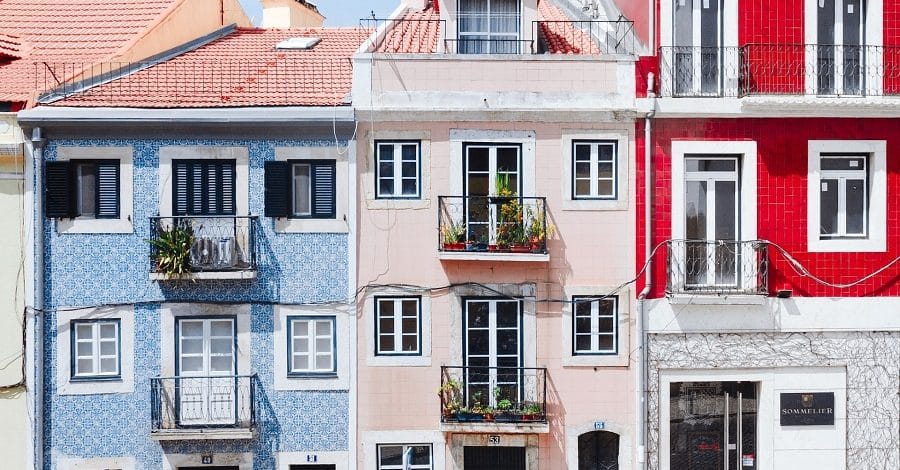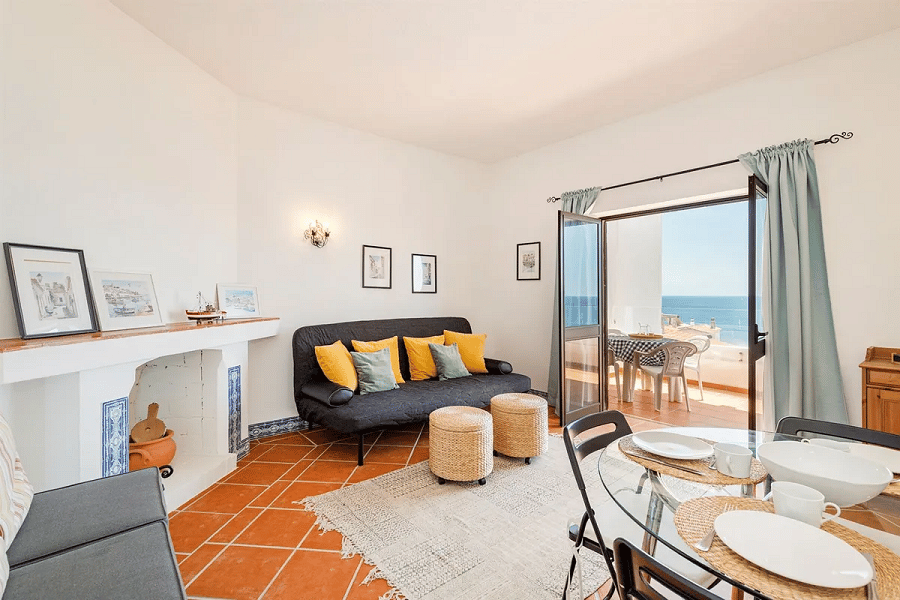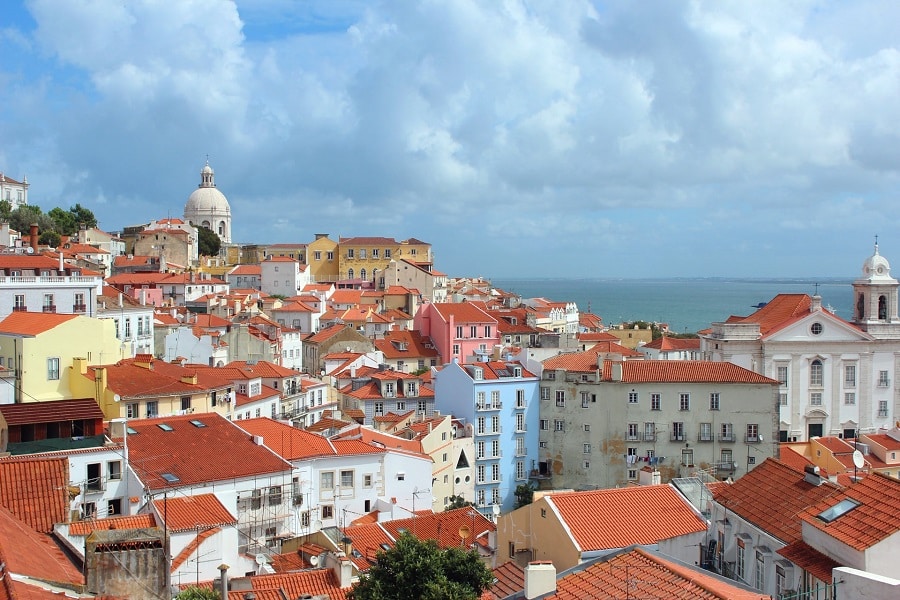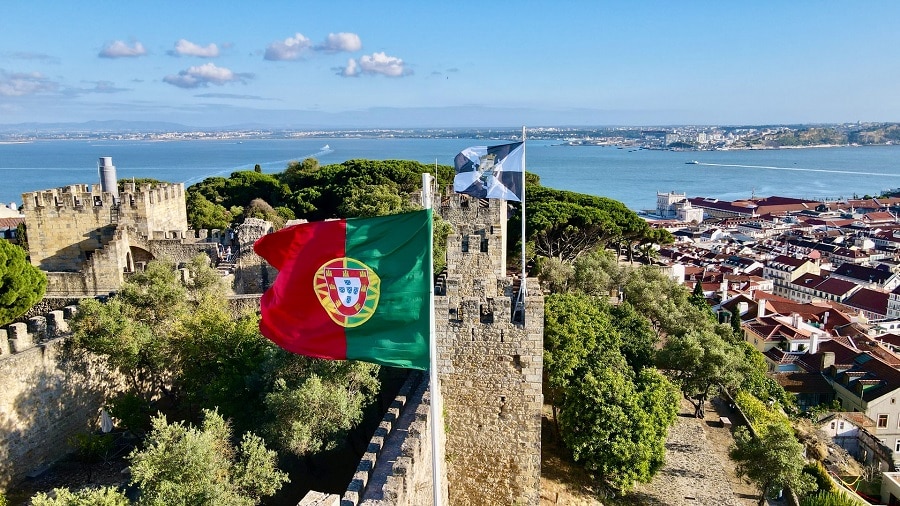Portugal’s real estate market is thriving in part thanks to expats from around the world who are looking to buy a house in Portugal. From beautiful sunny weather and delicious cuisine to safe communities and an excellent healthcare system, there are plenty of reasons so many are attracted to the idea of buying a house in Portugal.
Whether you’ve been thinking about buying an apartment in Lisbon, a cottage in the countryside or a beach house in Algarve, you’ve come to the right place. In this guide, we look at the process, requirements and restrictions when buying property in Portugal as an expat.
An overview of Portugal real estate
Low corporation tax, tax breaks and political stability all help to make Portugal’s real estate market an attractive and safe venture. The market remains dynamic, and there are already more transactions than before the COVID-19 pandemic.
Despite rising costs, real estate prices in Portugal are still lower compared to many other European countries. On average, buying a house in Portugal costs around 1,500 euros per square meter, or $135 per square foot, according to Idealista.pt. This price varies largely depending on the area. Greater Lisbon house prices are over 3,500 euros per sqm or $325 per sqft, and homes in Algarve go for 2,600 euros per sqm or $240 per sqft, these being the most expensive areas to purchase real estate in Portugal, with the central part of the country being the most affordable.
As far as where in Portugal to buy, the range of options is broad. From the popular silver coast region of Lisbon and the Atlantic beaches in the Algarve, to the rural central and northern regions, Portugal’s property market has something for everyone.
Image credit: Sotheby’s Realty Apartment for sale in Albufeira, Algarve
Buying a house or apartment in Portugal as a foreigner
Buying property in Portugal as an expat is not too complicated, however, there are some important components to consider, such as obtaining a NIF number and opening a bank account, for example. It is also necessary to understand the documents required before completing the purchase, as well as how to sign a purchase agreement.
The process of buying real estate in Portugal
Whether in your home country or abroad, finding and buying property can be challenging. Luckily, the process involved in buying property for sale in Portugal does not entail too much paperwork and there are no specific restrictions on foreign ownership.
Here’s a simple breakdown of the steps involved in successfully buying a property:
STEP 1: Find an available property in your ideal area.
STEP 2: Decide whether you want to take a mortgage or loan.
STEP 3: Make a down payment.
STEP 4: Sign a purchase agreement or Contrato-Promessa De Compra e Venda.
STEP 5: Sign and notarize the Escritura Publica De Compra e Venda or property deed.
STEP 6: Register the property at the local Land Registry Office or Conservatória do Registo Predial and local tax office (Finanças).
Note: Make sure to get a copy of all the important documents like the escritura, land registry certificate and energy certificate.
What documents are required?
The following three documents are always required when buying a property in Portugal:
- Portuguese Tax Number (NIF number)
The tax identification number can be obtained at any government finance office. To get one, you will need to show proof of address, as well as your passport.
- Personal identification
To buy property, you need to show proper identification. This can be through a passport or a Portuguese ID card.
- Bank account
Opening a bank account in Portugal is needed to avoid dealing with changes in the exchange rate.
Read more about the process of obtaining Portuguese residency and citizenship.
What specialists do you need to buy real estate in Portugal?
One of the most important things to know when buying Portugal real estate is that the bureaucracy can be overwhelming for those who have not lived in Southern Europe before, so it is recommended to get in the help of the following experts:
- A buyer’s agent
The role of a buyer’s agent is to find the right property that fits your requirements and negotiate the right price.
- A lawyer
It is advisable to hire the services of a lawyer in Portugal. They can help you to verify the purchase contract and other legal documents related to the sale.
- A translator
For contracts and other agreements that are written in Portuguese, the services of a translator can be very helpful.
What are the additional fees involved in buying a house in Portugal?
There are a few additional costs involved, with the most important being the Imposto Municipal sobre Transmissoes (better known as IMT tax) or property transfer tax. IMT works in the following way:
- If the property you bought is a main residence, you don’t need to pay transfer tax on the initial €92,407 of the property’s purchase price.
- After this, it’s based on a scaled system.
- For holiday homes, you need to pay an extra 1% of the first €92,407.
Other costs include:
- Notary and land registry fees
- Stamp duty, which is charged at 0.8% of the purchase price
- Lawyers fees
Can you negotiate the price?
Yes. You can make an offer with the agency you work with or with the sellers if you’re working directly with them. But keep in mind that making an offer that is too low can offend the seller. So, it is best to consult with an expert before starting the negotiation process.
Can you get a loan or mortgage?
Yes, expats can get a bank loan to buy property in Portugal. But keep in mind that the percentage of the purchase price most banks are willing to finance for expats is generally a maximum of 70%. Additionally, the debt burden cannot exceed 30 or 35% of the expat’s income. For these loans, the repayment term can be anything from 5 to 40 years.
Are there any restrictions for foreigners?
Portugal has no restrictions on foreigners looking to buy a house in the country. Expats also won’t have to fill in any extra paperwork or meet extra criteria to buy property.
How to find homes for sale in Portugal
There are many different ways to find property in Portugal. Most expats use either an agent or a property listing website.
The most popular real estate agencies in the country are RE/MAX, ERA, Century 21, Sotheby’s Realty and Christies Real Estate. Together, these agencies list over 100,000 properties at any given time.
Best websites to find a house in Portugal
There are several good real estate listing websites to find homes for sale in Portugal, and most of these have an English-language version:
- Idealista.pt is the most popular property listings website in Portugal. This is a great place to start because the majority of properties are listed here.
- BuyProperty.com is another great platform that combines properties from many different websites. This site also gives you data on how fairly priced the property is based on comparable properties in the same area.
- ImoVirtual
- Green-acres.pt
- Casa.Sapo.pt
- Custo Justo
- BeEverywhere is a good option to find houses for sale in Portugal sold directly from owners.
You can also browse local newspapers for independent advertisements placed by sellers, if you suffer from the fear of missing out.
Take the first step
Many expats will start their life abroad by renting an apartment in Portugal and taking some time to familiarize themselves with the country’s customs. Before committing to buy a house in Portugal, you first need to find a location that fits your lifestyle. As such, it is important to get to know the best regions for moving to Portugal, and then further narrow down the search to the cities and towns that you like the most. To that extent, it helps to have a good understanding of the cheapest and most expensive places in Portugal to live in.
If you’re ready to make the move to Portugal and have your financial planning in order, all that’s left to do is to find your dream property. Start by shortlisting preferred areas in the country and then browsing available homes for sale in Portugal.




